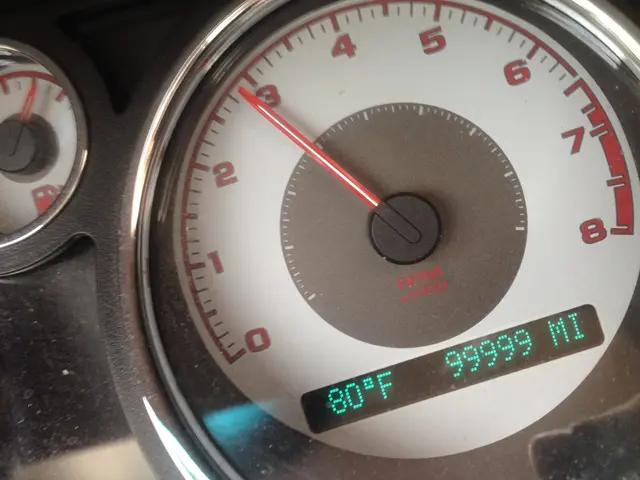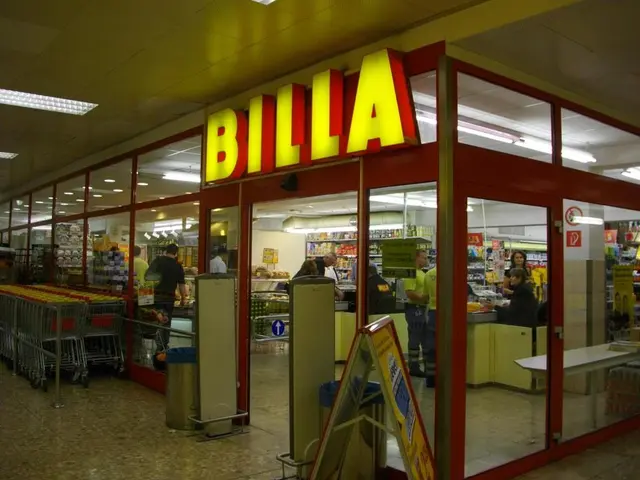The 2025 Energy Crisis: A Year of Global Power Struggles and Conflicts
Volatility in the petroleum and gas industry markets
Prepare for a Stormy Year in Energy Markets
2025 has all the makings of a tumultuous year in the global energy landscape, especially for European nations. A perfect storm of geopolitical feuds, disrupted supply chains, and climate goals are brewing, threatening energy security and stoking conflicts.
Europe’s Energy Woes
- Russian Friction: Since New Year's Day, European Union countries have been bereft of cost-effective Russian gas due to the Ukrainian government's decision. This move significantly reduced the EU's gas supply by 5%, forcing them to depend on the global LNG market, where gas is often scarce and expensive[1].
- Market Volatility: The price level on the European spot market has surged since the change in gas supply sources. Meaningful household and industrial consumers are being hit with significantly higher energy bills compared to other regions[1].
- Supply Risks: With Germany receiving half of its domestic gas consumption from Russia in 2021 and concerns about stable gas supply growing, the Federal Network Agency has already advocated for gas savings[1].
Baltic Sea Conflict Zone
The EU sees a Russian fleet, insured outside London, as a source of uncertainty and has already imposed initial sanctions. Conversely, the EU Commission and certain Eastern European member states aim to phase out Russian energy sources by 2027[2].
Global Energy Disputes
- Qatar Showdown: Tensions might escalate between Europe and Qatar if the EU extends its environmental regulations to Qatari gas suppliers, possibly resulting in supply disruptions[2].
- Trade Wars and Real Wars: The US could potentially use trade policy as a weapon against European allies, or even engage in real wars over oil, as demonstrated by the rhetoric from the upcoming Trump administration regarding Iran[2].
- Iranian Oil Threat: A potential US-led attack on Iran could remove around 2.8 million barrels of Iranian oil production daily and threaten the transport of oil and LNG through the Strait of Hormuz[2].
Europe's Vulnerability
Europe currently finds itself in a precarious position as it is energy-poor and has no long-term contracts to guarantee its energy security.
Possible Solutions for Europe
- Alternative Energy Sources: Engaging in continued exploration of alternative fuels, such as renewable energy and non-Russian LNG, can help reduce European dependence on any single source[5].
- Strategic Energy Partnerships: Fostering strategic partnerships with other regions like North Africa, the Eastern Mediterranean, and beyond can lead to more stable energy flows[5].
- Policy Coordination: European countries can collaborate to create a unified approach to energy security and climate objectives[5].
- Renewable Technology Investment: Step up investments in renewable energy technologies despite the challenges to meet climate goals and cut ties with fossil fuels[5].
- Transparency and Cooperation: Promoting transparency in energy markets and encouraging global cooperation can help manage geopolitical tensions and stabilize energy supplies[3][4].
[1] https://www.bloombergquint.com/onweb/energy-crisis-europe-govt-power-struggles-conflicts-year-supply[2] https://www.reuters.com/business/energy/russia-insurance-deal-stirs-fears-europe-u-s-energy-supply-chains-2022-11-03/[3] https://www.csis.org/analysis/future-european-energy-diversification[4] https://www.kyivindependent.com/economy/enough-gas-europe-winter-5155180/[5] https://www.reuters.com/business/energy/europe-seeks-to-reduce-natural-gas-oil-dependence-on-russia-2021-05-26/
- In the wake of Russian gas supply disruptions starting from January, the EU is grappling with the risks associated with relying on the global LNG market for its energy needs, as prices are often high and supply is often scarce.
- The rapidly rising price level in European energy markets is causing significant financial strain on many households and industrial consumers, making energy bills significantly higher compared to other regions due to the change in gas supply sources.
- With Germany receiving half of its domestic gas consumption from Russia in 2021 and concerns about stable gas supply increasing, the Federal Network Agency has advocated for gas savings as a precautionary measure.
- The EU's relationship with Qatar could face challenges if the EU extends its environmental regulations to Qatari gas suppliers, potentially leading to supply disruptions.
- To mitigate its vulnerability and ensure energy security, Europe can take steps such as exploring alternative fuels like renewable energy and non-Russian LNG, developing strategic energy partnerships with regions like North Africa and the Eastern Mediterranean, coordinating policy among European countries, increasing investments in renewable energy technologies, and promoting transparency and cooperation in energy markets.








